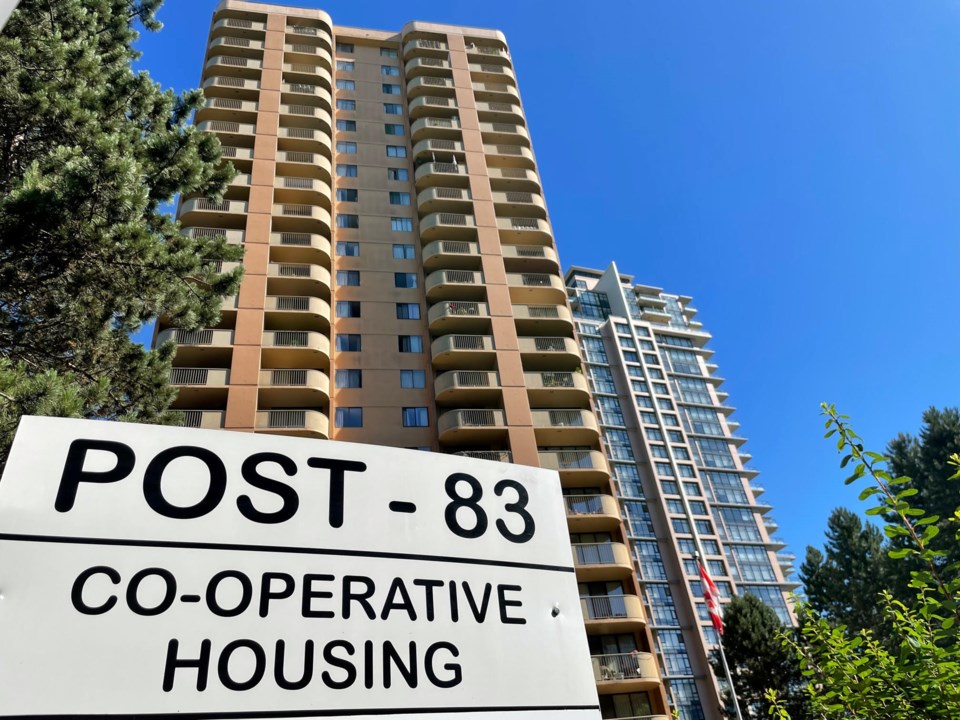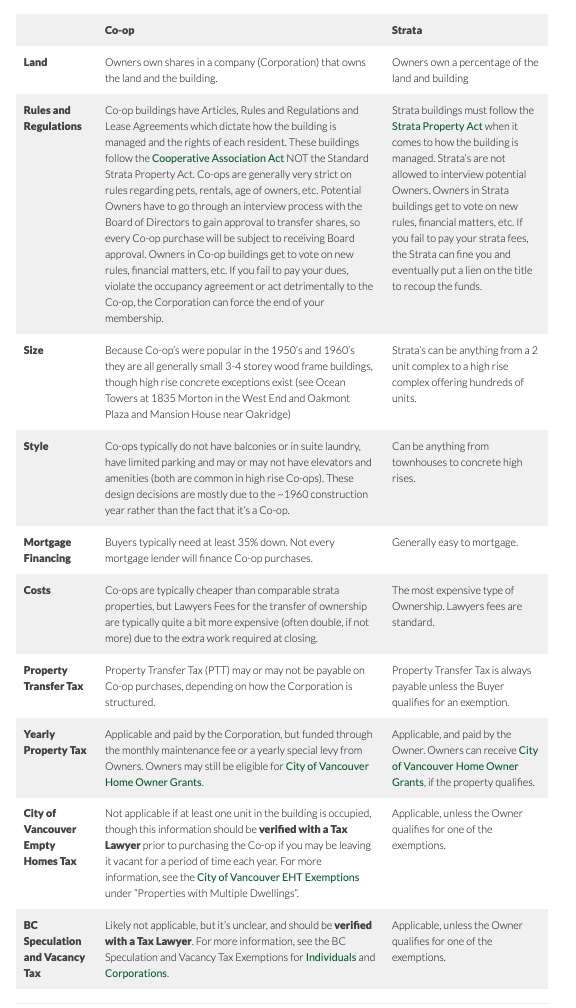
In the dynamic real estate landscape of Vancouver, prospective buyers are often presented with a choice between two distinct forms of ownership: Co-op and Strata. Each offers its own set of advantages and considerations, making it essential for buyers to understand the differences between the two before making a decision. Let’s delve into the nuances of Co-op and Strata ownership to help you navigate this important aspect of the homebuying process.
A Brief History: The roots of Strata ownership in British Columbia can be traced back to 1966 when the Strata Title Act was introduced. This legislation revolutionized property ownership by allowing for the subdivision of buildings into separate units, each with individual ownership rights. Before this, Co-op ownership, short for Cooperative Housing Corporation, was the predominant model. Co-op ownership involves shareholders collectively owning a building and the land it sits on, with each shareholder holding shares associated with a specific unit.
Understanding Strata Ownership: In a Strata development, the building is divided into separate units known as strata lots, allowing for individual ownership. Alongside the strata lot, owners also have a share of the common property, known as unit entitlement, which is proportional to the size of their unit. Strata ownership typically involves a strata council responsible for managing the common areas and enforcing bylaws.

Exploring Co-op Ownership: Co-op ownership, on the other hand, involves buyers becoming shareholders in a Cooperative Housing Corporation that owns the building and land. Shareholders hold shares corresponding to their unit and participate in decision-making through general meetings and elected boards of directors. Co-op properties can offer a more affordable alternative to Strata ownership, with some Co-ops having restrictions on pets, rentals, and age requirements.
Location and Suitability: Co-op buildings are predominantly found in areas like the West End, Oakridge, Fairview, Kitsilano, and Kerrisdale. They can be particularly attractive to downsizers seeking a secure and cost-effective housing option or parents looking to purchase a stable home for family members. Despite the potential for lower costs, Co-op ownership may require a significant down payment, often around 35%, which can pose a challenge for some buyers.

Conclusion: Both Co-op and Strata ownership offer unique benefits and considerations for buyers in Vancouver. While Strata ownership provides individual control over units within a shared building, Co-op ownership offers a sense of community and collective decision-making. Understanding the intricacies of each ownership model is crucial for making an informed decision that aligns with your lifestyle and financial goals.
As you embark on your homebuying journey in Vancouver, consider reaching out to us to help you navigate through the nuances of Co-op and Strata ownership, helping you find the perfect fit for your needs and preferences.
Team Toly & Josie
